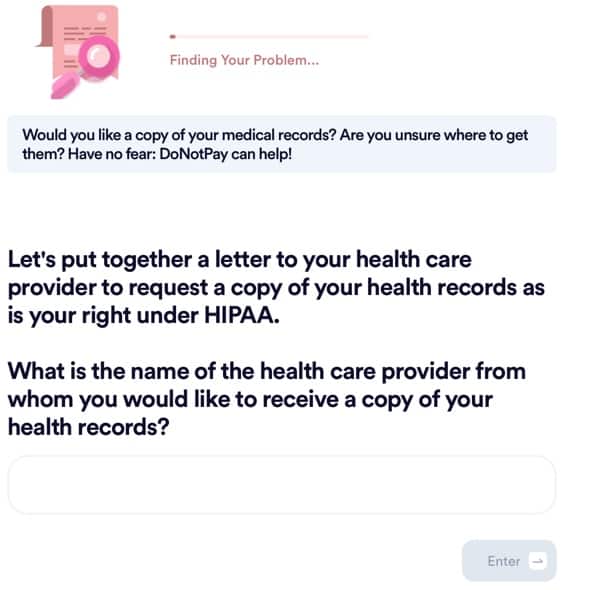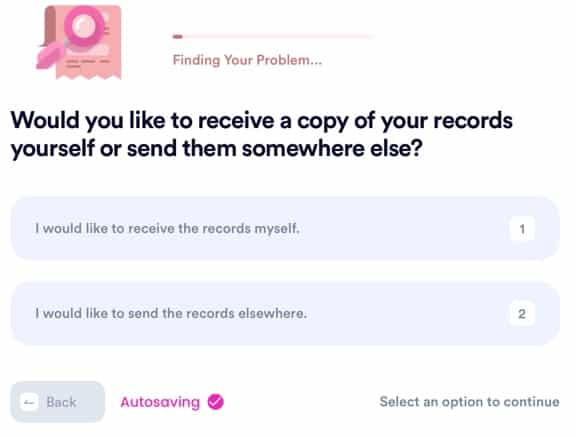How to Speed Up Your Request for UMC Medical Records
In 1996, the U.S. Congress passed the Health Insurance Portability and Accountability Act (HIPAA). HIPAA guarantees patients the right to access their personal and to restrict others from seeing those medical records. Subsequently, in 2009, Congress passed HITECH legislation to require health records, including electronic medical records, as a nationwide goal for healthcare providers.
Patients have various reasons for accessing their medical records. They may want to avoid duplicate surgical procedures. Perhaps they want to update their personal health information so that their medical professionals and caregivers have the most updated health information. Updated medical records are critical in the event of medical emergencies, or when the patients no longer have the capacity to direct their own healthcare.
Whatever the reason, healthcare advocates recommend patients take advantage of the right to access personal medical records. The process of obtaining your medical records without help can mean frustration and time wasted. In some cases, a patient may not know who to contact or where to send the request for access to personal medical records.
Do not fret! DoNotPay is the automated, web-based platform that helps you request your UMMC medical records faster and easier than the do-it-yourself method.
What Types of Medical Records Are Restricted From Being Released?
State and federal laws restrict the types of medical records that healthcare providers may disseminate without the patient's written consent. Written consent takes the form of medical record release forms.
Except where patients may harm themselves or cause harm to others, the law restricts the distribution of the following medical records:
- Treatment for sexually transmitted diseases (STDs);
- Treatment for mental illness; and
- Treatment for substance abuse and alcohol abuse.
In general, healthcare providers may distribute the medical records of a minor to the minor's parents. Some states, however, modified that rule. The law makes an exception for the following circumstances:
- California, for example, requires written consent from minors age 15 and older, who maintain their own residence and can self-support.
- Caregivers require knowledge of their patient's medical records in order to provide them the best and safest care possible. Therefore, the law requires no consent from caregivers.
How to Request Medical Records From UMMC
The information that makes up a patient's is confidential. Therefore, the UMMC requires the patient's written consent before the hospital will release a patient's medical record to others. The signature must be an original signature not one created by electronic means.
Patients may request their UMMC medical record by taking the following steps:
- Print out the Request for Use and Disclosure of Protected Health Information form.
- Submit the authorization release form:
| Attn: ROI
HIM/UMC Medical Records 110 S. Paca Street, 9th Floor Baltimore, Maryland 21201 | |
| In-Person | Department of Health Information Management
22 S. Greene Street First Floor, West Elevators Baltimore, Maryland 21201 |
| Fax | Monday to Friday, 8:00 Am - 4:30 PM
410-328-2358 - Emergency patient care only 410-328-0537 - All other requests If requesting after normal business hours, call 410-328-6750 before faxing the request |
Does UMMC Charge for Medical Records Disclosure?
Yes. UMMC charges fees to disclose UMC hospital medical records as outlined below.
Patients who request copies of their medical records will receive an invoice with the materials as follows:
- $7.00 for an electronic copy
- $.07 each page plus postage to mail paper, hard copies
All invoices should be returned with the required payment to the HIM/Medical Records Department. Checks should be made payable to The University of Maryland Medical Center.
For third-party requests, UMMC requires payment before it will disclose medical record information to third parties. The charges include
- $22.80 for labor and supplies
- $0.76 per page
- Applicable postage fees
The request and payment should be mailed to the HIM/Medical Records Department.
How Long Does It Take to Receive the Medical Records?
UMMC anticipates receipt of medical record information within 5 days after the request. If the requestor does not receive the medical record information within 10 days, call 410-328-5706, select option 2 to speak to a Release of Information technician.
UMMC may include a postage-paid Customer Service Card with the requested information package. UMMC requests that requestors return the completed form.
Request Your UMMC Medical Records Faster With DoNotPay
DoNotPay is the perfect way to request medical records. This innovative, user-friendly platform makes the whole process fast and easy. DoNotPay knows how to write healthcare providers a simple, clear, and effective letter, designed to get legally-guaranteed health records in no time.
The process only takes three simple steps:
- Look up medical records on DoNotPay's website.

- Enter the name of the health care provider you'd like to receive medical records from.

- Answer a few questions about your provider and where you'd like to send the records.

DoNotPay Works Across All Medical Providers
DoNotPay can help you get medical records from various healthcare providers, such as:
- Baptist Medical
- Cleveland Clinic
- Kaiser Permanente
- Mercy Hospital
DoNotPay also can help you request medical records nationwide, from shore-to-shore and border-to-border.
Does DoNotPay Help with Other Issues?
Helping you request medical records is only one of the ways that DoNotPay helps consumers. Check out the topics below:
- Airline Flight Compensation Hacks
- Appeal Parking Tickets in Any City
- How Much is Car Registration Fee in Your State?
- How to Get an Amazon Refund Without a Return
- How to Report a Pothole in Your City
- Create a Minor Travel Consent Form
These are just a small sample of the consumer issues DoNotPay covers. Visit DoNotPay today and learn how this innovative website can help you resolve different issues.
 By
By